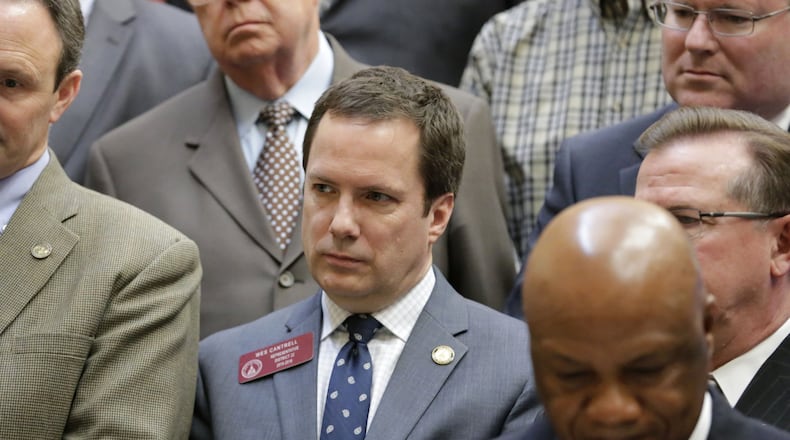The Georgia House of Representatives on Thursday rejected legislation that for the first time would have allowed any type of student in the state to attend private school with a public tuition subsidy.
Georgia already has such a program for students with disabilities. Another one allows taxpayers to reduce their state tax burden with a contribution to a private school tuition program.
But House Bill 482 would have created the first direct subsidy -- critics called it a "voucher" -- for any student to attend a private school. It would have allowed a limited number of parents to establish a state-funded savings account for educational expenses, including private school tuition.
“Let’s give 4,300 kids a chance at a better education,” said Rep. Wes Cantrell, R-Woodstock, the main sponsor. Rep. Valencia Stovall, D-Forest Park, also spoke in favor of the bill, saying some students, especially those with special needs, could benefit from the option to attend private schools.
But opponents, including organizations representing teachers and school boards, said it would further undermine funding for public schools, which are already underfunded by $167 million.
And lawmakers from both parties rose to oppose the measure when the bill came up for a vote after midnight during a marathon legislative day, the last opporunity to move bills from one chamber of the General Assembly to the other during this session.
Rep. Brooks Coleman, R-Duluth, the chairman of the House Education Committee, called it a voucher bill, and urged his colleagues to oppose it “because of the threat” to public education.
The legislation proposed “scholarship” accounts held by parents that would have been funded annually by the amount the state would otherwise have paid the public school the student attended. This amounts to about half of the cost to educate a student, the rest coming from local and federal tax dollars, which would not have followed the student to private school.
Participation was to be capped at a quarter of a percent of total public school enrollment, which is currently about 1.8 million students. That amounts to 4,366 students, and it was a concession.
Cantrell had first proposed a program that would grow over time, the cap rising by a quarter percent of total state enrollment each year. But he agreed to eliminate this “escalator” to get his legislation onto the House floor.
The Department of Audits and Accounts estimated that the legislation would cost as much as $17 million a year. The amount could also be less than $6 million due to uncertainty about how many participants would have attended private school anyway.
“That is a lot of money taken away from public schools,” said Rep. Rhonda Burnough, D-Riverdale. Rep. Tommy Benton, R-Jefferson, who, like Coleman, is a retired educator, also called it a voucher bill and worried that the cost would grow over time as lawmakers in the future were called on to raise the cap.
Finally, around 1 a.m., lawmakers cast their votes, deciding 60-102 against the bill.
About the Author
Keep Reading
The Latest
Featured





